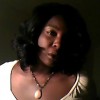A Great Debate...
With the advent of texting and the current embracing of minimalism, where are novel and poetry suppose to go?
When I read published books, there is a concerted effort to resist exposition. Books are bare, cold and lean. Comic books have a genre, but novels are synthesizing a style that rely on supplemental pictures. Dostoevsky, Tolstoy, Maugham and Steinbeck are relegated to disinterested youth yearning for action transposed into two-hour clips or 30-second cliff notes. Poetry now expresses spoken thoughts without images rather than the bleeding thick, rich metaphors of tradition. Great works are forsaken for their attributes in order to promote instant recognition and easy rhythmic pleasure. I believe in free verse. Whitman understood how to invoke passionate imagery without adhering to convention. Am I missing something? Am I longing for something the art can never recover?
What are your thoughts?Hmmm. You're interesting. I admit, I read your profile to see kind of where you are coming from...
So, do you REALLY feel like the poetry of today is lacking, or do you feel you no longer can give anything to it? Because this is not my experience with poetry at all. It feels laborious and inadequate to adhere to convention to me, in example, and maintaining convention does nothing to satisfy the need to write or express what I want.
As far as I know, thickly imagistic poetry is still in vogue, as long as you can create strong images and strong poems.
And I've got NO idea to what you are referring in prose. Are you suggesting we return to a Victorian plot structure and accompanying language? A good handle on exposition still seems necessary to create a good narrative story. As far as pictures more and more being incorporated into literary fiction--I find that interesting, because this is not the impression I had when researching a book I wrote on graphic novelists. They are a genre of their own. Also, this tendency to believe that placing pictures side by side with text is juvenile and low-brow is an old one which really bears no intellectual weight, as far as I can see.
edit- Asking all this, because it does sound like you have some interesting things to say... This was not necessarily a rebuttal, lol...Your line of thought is similar to my own on the matter of current literary trends compared to previous literary works of substance. The abbreviated communication styles of today that you mention work fine in science and technology---fields of activity favoring unemotional expression designed for expediency---but tend to strip literature down past its very underwear. The result gives the effect of a sort of artistic bankruptcy by comparison to previous literary styles of expression, some of which you mention above. I'm not nearly as widely read as you are in the latest literary trends. But that which I have looked at gives me a sense of something missing; I get that from the contemporary poetry more than from the novel. Fact is, my personal literary values are just different from what's current and I don't see ME changing to suit IT.
But I believe that literary art will always recover itself, twalker74, and art in general. History shows that art renews itself repeatedly, either by extension or by a radical breakthrough in form. Times and seasons must pass by before that happens, but the validation of new forms is basic to the life and development of both art and science.
As for the current trends toward minimilism, it's completely possible that a new and vital fusion form of contemporary and 'classic' values can be achieved.
Spareness of imagery can be blended with the old richness of metaphor, then reversed in the same novel or poem. But artistic balance, timing, and effective placement of those and other literary devices are always crucial; any fusion form or new genre needs its pioneer.
Until then, I content myself with the classic authors, pretty much contented and unconcerned about the methods and styles current unless I find something that personally appeals. That's probably all we can do--unless we ourselves opt to get in there and stir up something fresh!
That, of course, requires innate abilities which can't help but bust their way out into the public arena....
I still read books and love the classics. There will always be people who will want to read a good book regardless of the technology.
In regards to poetry my favorites are the Romantics, I don't mind poetry today but I prefer the flowery prose of Wordsworth.I agree with that too. I find the best books are the ones with simple plots and good twists like Great Expectations.
no, I don't think you're missing anything. great works of art in whichever form they are in will always endure and outlast the current trends. they come and go I believe.
to me current poetry seems to be sorely lacking. I just can't read it. I always will go back to the classic poets from earlier centuries.Okay, I have to answer you in stages because I have written about 700 words of rambling response. Maybe this will help me stay on point.
"So, do you REALLY feel like the poetry of today is lacking, or do you feel you no longer can give anything to it? Because this is not my experience with poetry at all. It feels laborious and inadequate to adhere to convention to me, in example, and maintaining convention does nothing to satisfy the need to write or express what I want."
As far as your first question, I know I have nothing to offer poetry other than opinion. I know what I need from it and I cannot give it that. Case in point is my answer. I cannot do anything that concise. As far as laborious, shouldn't it be intensely tiring work? Shouldn't the expression leave you exhausted by the end? I don't think it requires convention, but working within a convention forces a poet to use every facet and tool imaginable to be original. And when a person steps out of convention... Hey, if you can pull it off, I tip my hat. I am just not finding many who can do that. Louise Gluck is an example of some one who pulls it off, so I do believe it is possible.
"As far as pictures more and more being incorporated into literary fiction"..."Also, this tendency to believe that placing pictures side by side with text is juvenile and low-brow is an old one which really bears no intellectual weight, as far as I can see"
I want to address this first, because I definitely acknowledge the genius of people like Frank Miller. However, to me it is like golf. I appreciate it as a skill set I do not hold, nor could I begin to obtain anything close to what a person would call qualified. Their talent is admirable and it is a genre unto itself. Yet, it is the contemporary fiction writer who tries to imitate that short quip, fast paced, bare-boned style. Graphic artists are image driven and the words work in concert with that. If you take away the words, the image becomes a painting or a drawing. If you take away the image, you have a script without a movie.
"Are you suggesting we return to a Victorian plot structure and accompanying language?"
And no, I am not a big fan of the Victorians, though I acknowledge what they were doing. I think The Brothers Karamazov (Dostoevsky) might be my favorite novel and Residence of Earth (Neruda) my favorite collection of poetry. I appreciate crisp lean prose like No Country for Old Men, but it can get out of hand (like many from the Iowa Writers Workshop). I like a story to offer more than just the initial exposure. Something that may be a quick read because the plot is vastly entertaining, but if I chose to look deep into it, a completely new world opens. It shouldn't require work, but the work should be there if I want it. A good example is White Noise by De Lillo.
I do believe that writing should be an attempt to capture beauty. It is a vain and hopeless attempt maybe, but when something gets close to perfection, it makes my passion to get there stronger. It may be a beautiful misery like Of Human Bondage or Blood Meridian or the aesthetic beauty of say Keats or Wordsworth, or maybe the beauty of simplicity like A Clean Well Lighted Place.
Hopefully I answered everything.
Have you been to Iowa City? It's been a while since I've been there... And when I was there, I studied painting, though I have quite a few friends who went through the workshop. At that time (90's), the cliche wasn't crisp/clean, but macho Southern poverty writers like Chris Offutt. So I am asking some of these things because I am now working and don't have my thumb on the trends happening in writing and academe (I ended up with a degree in writing from Nebraska, btw).
Ultimately, it sounds like I believe the same thing you do--that writing (or any art) is an attempt to capture beauty. Graduate school teaching in painting really did a number on my head ("painting is dead...lets all be Jeff Koons and bastardize anything having to do with craft or anything to do with beauty"). Very confusing, that. Has to do with over intellectualizing or institutionalizing and realizing an MFA is a commodity - I read John O'Donohue's "Beauty: The Invisible Embrace," and felt more validated. He is a poet, but writes like a saint.
"As far as laborious, shouldn't it be intensely tiring work? Shouldn't the expression leave you exhausted by the end? I don't think it requires convention, but working within a convention forces a poet to use every facet and tool imaginable to be original. And when a person steps out of convention... Hey, if you can pull it off, I tip my hat. I am just not finding many who can do that."
Interesting. I must admit I never thought of anyone feeling like this towards any kind of poetic or rhetorical convention, because for me, it was like learning to walk, and then learning to run--creating my own conventions and the freedom I found in it. But I love your ideas that writing should be intensely tiring work - yes, it should be. And when you do have that connection to what you are working on--there is no describing it. I write copy for a living--all kinds of stuff: feature articles and advertisements, even scripts for videos, but to me that can be done without this kind of connection, making it like so much water.... So, reading what you write here makes me remember. I'm about to start Nanowrimo (I've procrastinated the actual start date) and was depressed because writing has just been about competency, I guess, for me for a while now...I wasn't really looking forward to it.
So, who do you like as poets personally - or have you seriously given up poetry for the pursuit of prose? I find huge beauty in Rilke, and have even written a series of poems based on lines from the Duino Elegies. (I should get back to that again.) I do like Louise Gluck...there are so many. Joy Harjo is another one who really creates her own conventions, but you feel the strength of the language as well as the images.
Are you published?Hi, I'm new here! Great discussion, though I must say something, rigghhht here.

If I understand correctly, you are indicating your belief that contemporary graphic novelist's take the rather easy way out by applying short lines of text next to images.
I must almost completely disagree. I have seen some of the most powerful stories told from the perspective of the photo journalist. The pain, confusion, heartache and disappointment have poured from a succession of images right into my lap affecting my current mood - without text.
I feel the same way about graphic novelists. Have you truly taken the time to look deeply at Frank Miller's work? I must say, with "300", you could almost take the words away and still have a story, not just paintings. This is why the genre is called sequential art. The story is told sequentially through imagery. Graphic novels have provided the framework for some very powerful films (The Road to Perdition), and since movies are motion pictures, the requirement for dialogue is not a point I'd consider as heavily with writing.
I guess my questions are, what is a true story teller? Does a story require words? Or can stories be told through imagery?
From the "speaking documents" from pre-history who recorded oral histories, to the novels of the 18th century, to the graphic novels turned into blockbuster movies of the 20th century, a story is something conveyed to another which teaches us. It does not NEED to be written to be conveyed. Why should we value one story over another, as long as we get the point?Yep. I agree with all of this. It's also telling that some painters are known as narrative painters - which can mean they are depicting some story in their static image such as the biblical or historical painters of the Renaissance did, or as modern painters do--they may include actual words in the imagery or the image may be made of words. Illustrated manuscripts are also a 'high concept' (or at least accepted by the mainstream as being high concept) example of the marriage between the image and the written word.
Another excellent graphic novelist is Bryon Talbot (British). I actually have written the only biography on him that is available thus far. He is well known for his "One Bad Rat," which was turned into a feature film, but also for the dark British political commentary inherent in his 'comics' (graphic novels).
"As far as laborious, shouldn't it be intensely tiring work? Shouldn't the expression leave you exhausted by the end? I don't think it requires convention, but working within a convention forces a poet to use every facet and tool imaginable to be original." twalker74
I love this, what a beautiful description of a poem being born.
although I have not worked too intensely of late on crafting poetry, a few years ago when I was writing more poems, that is exactly how it would feel. the poem itself was like a child, when I was done, I felt like I had given birth, the labor pains were over, the waiting for the arrival, the intensity of making it work. thanks for the inspiration.
have you read Letters To a Young Poet by Rilke? when I found that book and read it, it was like finding gold. what a beautiful book for any writer or artist.Thank you rebekahELLE and you are welcome for the inspiration--we could all use it sometimes—in any form. I do find that if what I am writing does not produce this sort of deep "spiritual" (for a lack of a better word) connection, what I write isn't worth squat. I intensely love the craft and I get a truly defeated sense, or at least a sense of tremendous disappointment when I read clichés or poetry that seems well thought out, but poorly structured. I need to read Rilke. I dabbled a bit, but not as much as is required to fully grasp the work.
Lita, I wouldn't claim to have a finger on popular trends, but seeing what is pushed and promoted that Southern voice has tempered. I was in Tennessee at the time you were in Iowa and that is all they talked about, "The rebirth of Faulkner" and a new southern movement. Now I do not mind extremely masculine writing, but I am not rushing out to get it. Lately, and maybe due to McCarthy's popularity, this bare minimalist movement is taking off. The stories I am reading are heavy in dialogue, and when they need to implement exposition it comes off forced. Like they handed it to a publisher and the publisher gives it back and says, "just describe here, here, and here." As if, it is there by instruction. I guess I am so retarded about words that I love reading every letter and examine how it is necessary. Like when Fitzgerald describes Gatsby's car, or Hemingway's need to implement food all the time. The first page of White Noise, where De Lillo describes the arrival of station wagons to the first day students move into dorms is awesome.
As far as my contribution to poetry, I am done. I had a couple of poems published way back when and I think the publishers did it out of pity. I can't even look at them. I still write poetry, but now it is purely personal. When I use convention, it comes off as tired and dry. When I step out of convention, it holds that emotional necessity, but lack rhetoric, pace, or any worthy conciseness. I love tangents and internal dialogue, vague notions and assumptions, which pushes me toward prose.
Well, a few of my favorite poets are Neruda, Lorca, Pope and Keats, and Paradise Lost could be one of my favorite reads ever. Birthday Letters by Ted Hughes is so amazing. (He wrote the book about his life with Plath to deal with her death.) I loved it so much I ran out, bought two more collections, and didn't even recognize his writing. Prose is another story all together. I'll read anything. The Lost Generation and the Beatniks were my first loves, but with the exception of Ginsberg, I could care less about the latter. Satanic Verses (Rushdie) might be one of the most underappreciated works of the later half of the 20th Century. I will read any mythology or classical Greek and Roman work I can get my hands on.- Leta Sposted 14 years ago
0
Hi, twalker-
Great Gatsby is a poem of a novel and one of my favorites. There is nothing wasted in that slim volume, but incredible images are apparent. Do you know Annie Proulx's stories or novels? I have only been completely, thoroughly impressed by one or two modern writers, and she is one of them. Her Shipping News has it ALL--images, exposition, rollicking plot, great characters, enough philosophy to make it intellectual, enough soap opera so that it has heart. Her own personal story is also inspiring--she's a Phd dropout, lol, who lived on the edge in poverty, and I feel her voice is uniquely her own... The trouble with MFA programs is that they get political so that who knows if you are really achieving the voice you should achieve. It is good to be able to talk about writing and creativity, but strange schools of thought (I don't know if I'd even call it that) develop around the cult, I guess, of some profs, and you end up with a glut of this stuff like what you are saying, minimalism, blah, blah.
You know, I love Michener almost solely FOR his exposition. lol And because reading those thick 700 page books of his are like reading a history book. I read my first one at age 12, and my opinion is still the same. And I don't care if it is fashionable, either.
Sounds like you will bring a poetic sensibility to fiction, and that (to me) is a good thing...
I have published a fair amount of poetry, but have yet to have a book of poems published. It is easy NOT to, I guess, when you are 'employed.' Or whatever. It's all work and takes up space and time. I wrote fiction when I was younger, but I think I must have somehow given up the notion of it for nonfiction for the bread and butter, and poetry for the "connection." Of course, poetry is small and easier to fit around things, .
.
I am procrastinating my Nanowrimo novel again, but sometimes (you are right) realizing you cannot write with a defeated sense is more important than output.
I will have to get over and read your hubs. What (if any) fiction are you working on currently?Mostly I am posting my projects on Hubpages because I am in a bit of a rut. The words are not a problem, but the direction is another matter. The Alden Gardner Stories are the focus; they are kind of marriage of between Winesburg, Ohio (Anderson) and The Nick Adams Stories (Hemingway). It is part of my frustration. The dialogue is fair, but the exposition seems uninspired.
I have to say that I actually love a lot of work in the 20th Century, so many drastically different trends in such a short time. And I agree with cult mentality. I finished up at UNLV in May and the program is vastly underrated. The faculty is far better than I expected. Yet, the MFA program is falling into that cultish direction. The director graduated from Iowa in the 80's, but he just took a different position within the department so I am curious if that direction changes.
I tip my hat to you writing for the money. I just can't do it. I tried a couple jobs and wrote a couple business proposals. I get frustrated and bored quickly. Sadly, I turn into a big brat because I sulk to myself that I need to be writing what I want like the overgrown only child that I am.
And you are awesome I love Michener, such a wonderfully guilty pleasure for anyone who loves words. Chesapeake is my favorite. I even drove there on a whim when I was in Tennessee. Just packed up, took off for a week, and lost my job. And I have written down Annie Proulx. I have not read her, so I will check it out. Thanks for the recommendation.
PS Great hub about "bitches." I could write a thousand words about my opinion due to your point. You are spot on with your assessment.
The question seems nostalgic. There's surely much written today that has equal merit, just not the filtered validation of time?
Related Discussions
- 102
Great Writing Gets Blown Off on HubPages
by Shadesbreath 14 years ago
You know, I see forum posts complaining about how the forums are boring or dying. I see people complaining about how there's all "Indian Aunties" hubs or picture hubs, how people don't edit, it's all marketing crap and nothing good to read... and then I find these amazing...
- 46
Do you think its a good idea or bad idea to write about politics on HubPages?
by Mary Craig 11 years ago
Do you think its a good idea or bad idea to write about politics on HubPages?Politics, like religion, stirs up emotions in some people bringing out their, shall we say, darker qualities. Knowing this is it a good idea to rouse them with political hubs?
- 166
If Christianity really is the truth, shouldn't scrutiny demonstrate its truth?
by Elizabeth 9 years ago
If Christianity really is the truth, shouldn't scrutiny demonstrate its truth?All over the place in America, we see believers responding with outrage and defiance when Christian beliefs are challenged or questioned. If the beliefs of Christianity are, in fact, the truth - the only truth, then...
- 6
Are "Cancer Stories" a Literary Cliche?
by Ken S Harris 11 years ago
In college, I submitted a story I had written to an advanced creative writing workshop. It was inspired by a friend of mine who found out she had cancer. So, I wrote about it. The workshop said, though my story could be an exception because it didn't focus solely on cancer, "cancer...
- 27
Why not delete hubs such as "Hot Actress (name here) sexy pics"
by FuzzyCookie 13 years ago
I am really annoyed. I really dont understand whats the point in those hubs. Or are they really allowed in here? The pics are posted mostly by someone from India and I dont know what sort of value is added on hubpages by those kind of hubs.I mean arent there lots of photosharing websites for all...
- 14
Is Hubpages a breeding ground for great poets or a place for back-slapping amate
by Tallgardener 11 years ago
Is Hubpages a breeding ground for great poets or a place for back-slapping amateurs?












